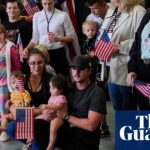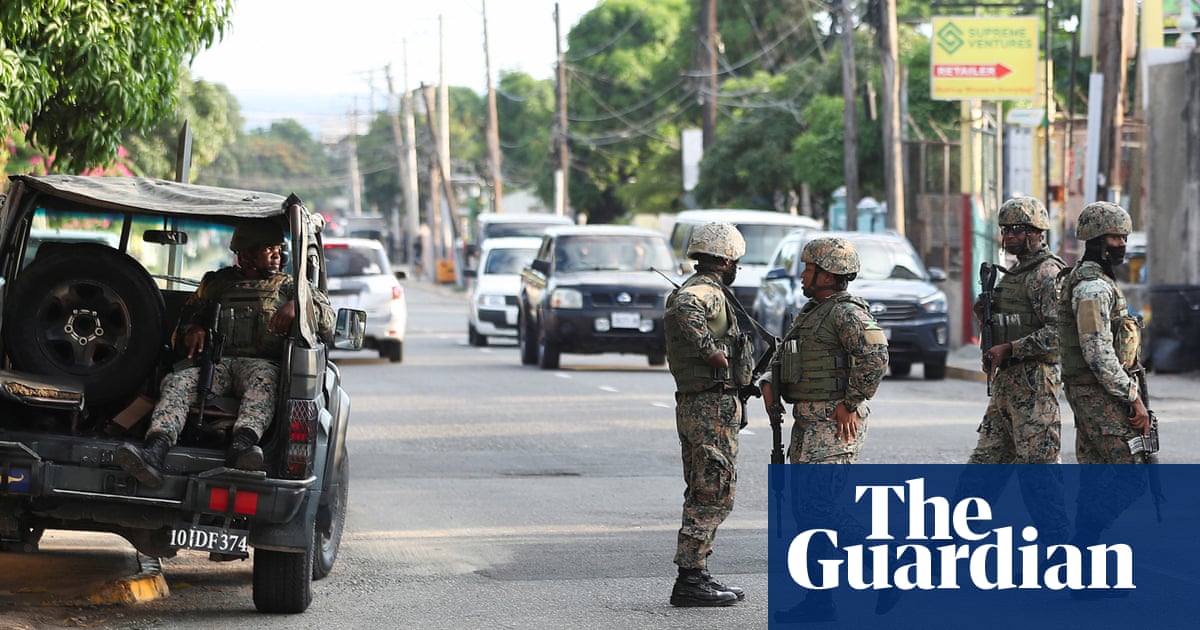Jamaican officials have hailed a sharp reduction in murders but rights campaigners warn that tackling crime should not come at the expense of accountability amid an “alarming” rise in fatal police shootings.
Already burdened with the highest homicide rates in the region, Jamaica has recently struggled with a surge in gang-related violence. But the number of murders per capita has been falling this year, with a marked decline between January and April.
“April 2025 has marked another historic milestone. For the second time this year, we have recorded the lowest number of murders in over two decades,” Dr Kevin Blake, the police commissioner, said in a statement.
He added that this “progress is not accidental” but a result of “careful planning, tireless execution, and a commitment to excellence” by the Jamaica Constabulary Force, the Jamaica Defence Force and their strategic partners.
According to Blake, compared with the same period last year, between January and April, there has been an 18% decline in overall major crimes, and murders are down by 37%.
“These are not just statistics. Each number represents lives saved, communities stabilised, and a signal that the tide is turning,” he said.
But the human rights group Jamaicans for Justice (JFJ) has raised concerns about a corresponding “significant and alarming increase” in fatal police shootings in the same period.
According to Jamaica’s police complaints authority, the Independent Commission of Investigations (Indecom), 111 people were fatally shot by security forces between January and April 2025, compared 44 in the same period last year – a 152% increase.
Indecom is calling for strengthened accountability through mechanisms such as body-worn cameras amid an “elevated increase in use of force by the State”.
Their concerns and recommendations are echoed by JFJ, which recently staged a protest against the “significant and alarming” increase in fatal shootings by police.
Joining the calls for more body-worn cameras, JFJ’s executive director, Mickel Jackson, said: “Outside of the numbers, which in and of itself calls for greater scrutiny, we have received complaints, where citizens are giving a different account from the police’s official account.” She added that there were instances where amateur videos contradict police accounts of fatal shootings.
These “conflicting accounts”, she said, were “enough to take pause and certainly to advocate for body-worn cameras”.
Carla Gullotta, the executive director for the human rights group Stand Up For Jamaica stressed the importance of building relations between the police and people in “fragile and volatile areas”.
Katrina Chin, whose cousin, Andrew Richards, 39, was killed by police in January, also called for greater transparency from police. Indecom is still investigating Richards’s shooting, but his family has maintained that he was innocent.
Recalling the morning that she watched her cousin’s body being removed from his house covered by a sheet after an early morning defence forces raid, Chin said: “I understand that our country seriously has a problem with crime. We’re not denying that.”
JFJ’s work, she added, is not anti-police. “We’re just advocating for it to be done the right way. We can’t just be so desperate to lower our crime rate that we’re willing to kill innocent people,” she said.
She added that politicians should be careful that, in their defence of police actions, they are not “fueling” the view that the police are “untouchable”.
Ahead of the JFJ protest against the increase in killings, for which they asked their supporters to wear black, a counter-protest was launched on social media, which invited people to wear blue in support of the police. Major businesses such as Jamaica’s popular pharmacy chain, Fontana, supported the “blue” campaign.
Executive director Kevin O’Brien Chang said he and staff decided to wear blue because the plummeting crime rates were making people feel safer. “Every day, the police and soldiers put their lives on the line, and they pay the ultimate price,” he said.
During the protest, the Jamaican prime minister, Andrew Holness, was pictured in a blue suit speaking to a police superintendent, with local media reporting that he wore blue to support the counter-protest.
Addressing concerns about the increasing number of killings by police, Holness reportedly said: “Obviously, the JCF’s increased activities in interdicting criminals and in dealing with the gangs would have caused a significant increase in the loss of life of those who challenged them. But I think the country should also understand that the gang warfare is at a level where we must respond and respond decisively.”
Blake, the police commissioner, defended his officers, saying: “We are a disciplined, modern law enforcement agency with a constitutional mandate to serve and protect all Jamaicans without fear, favour or ill will.”
Jackson stressed that everyone, including the police, had the right to defend themselves. But, she added, “you can support the police and still be pro-accountability. You can support the police and the reduction in murder rates and their efforts, and still call for the body-worn cameras.”
The police themselves would benefit from having the independent account from a camera, she said, adding she was disappointed to see the head of government appearing to choose sides, even if that was not his intention.
“A call for accountability should never be seen as anti-police, and this was a moment, in my humble opinion, that I believe that the prime minister of the country should have come out and say that ‘I stand with law enforcement officers – but I support the call for increased accountability,’” she said.










